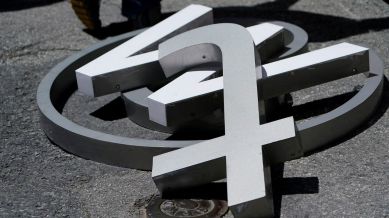Elon Musk’s X, previously Twitter, now worth less than half what he paid for it
Elon Musk's X, formerly Twitter, has lost more than half its valuation since the billionaire took over.

More than a year after Elon Musk acquired Twitter for $44 billion, the platform, now called X, has been valued at $19 billion. Also, that number could be a conservative estimate for how much the company’s value has dropped since the billionaire took over.
It must be noted that while Musk is X’s chairman, it does not yet have a formal board of directors.
Interestingly, other sources estimate that the company’s value has nosedived even further. Fidelity Investments, which contributed more than $300 million to Musk’s takeover of the social media platform, estimates that the value of its investment has decreased by 65 per cent, reports Axios. This means that X would be worth about $15.4 billion.
But that does not come as a surprise. A report by The Guardian in March this year suggested that Musk knows the value of his investment has decreased by more than 50 per cent. The billionaire, in an internal memo to employees, said that the company is valued at less than $20 billion.
But you don’t need Musk’s admission to predict the fall in valuation. It will come as even less of a surprise if you consider some of the sweeping changes he made after he took over, some of them ill-thought-out.
Immediately after the acquisition, Musk laid off nearly 3,700 employees, which is about half its workforce. While that move was panned at the time, many large tech organisations closely followed Musk’s lead by announcing layoffs of their own. This includes some of the biggest names in Silicon Valley, like Meta and Microsoft.
But one of the more questionable moves was Musk’s elimination of the existing verification system on the platform. X, which was still called Twitter at the time, took away the verification badges of many journalists, academics and other organisations that went through the platform’s rigorous (and admittedly opaque) verification system.
Then, the blue checks were offered as a feature of the company’s paid Twitter Blue service. This led to hundreds of fraudulent accounts passing off as legitimate with the help of the “blue ticks,” spreading misinformation, disinformation and hate speech on the platform.
This was exacerbated by the fact that many members of the company’s content moderation teams were affected by the layoffs, meaning that the platform was ill-equipped to deal with the torrents of misinformation that were now flowing through it.
It did not take long for advertisers to leave the platform. General Motors, Ford and General Mills were among the first to announce that they were leaving Twitter due to concerns over content moderation.
Since then, the platform has been rebranded to X, throwing away years and billions of dollars worth of branding. The word “tweet” had made its way into the Oxford dictionary, becoming a verb that was as well recognised as “googling” something. Now, the platform refers to its posts as posts—like every other social media platform.
It would also seem like none of the strategies employed by the company to regain advertising revenue since then have not paid off. As recently as July this year, Musk revealed that the company’s cash flow is negative and said it lost more than 50 per cent of its advertising revenue. Some estimates put that number at 70 per cent. Of course, the company will also have to pay $1.5 billion annually because of the debt it took on for the $44 billion deal that turned it private.